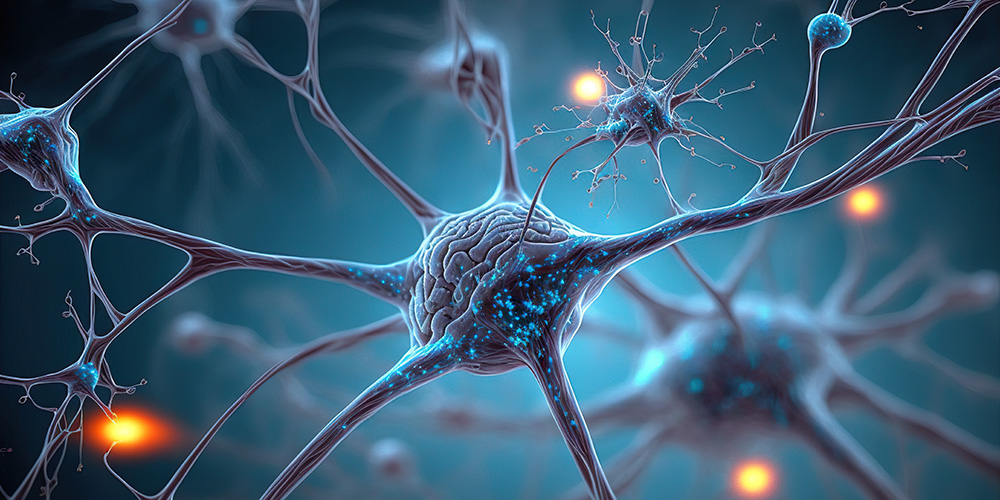Clinically relevant deficiency of the “bonding hormone” oxytocin demonstrated
The hormone oxytocin is important for social interaction and to control emotions. A deficiency of this hormone has previously been assumed, for example, in people with autism, but has never been proven. Now, for the first time, researchers from the University of Basel and the University Hospital of Basel have succeeded in demonstrating a deficiency of oxytocin in patients with a deficiency of vasopressin caused by a disease of the pituitary gland. This finding could be key to developing new therapeutic approaches.
15 May 2023
The hormones oxytocin and vasopressin are produced in the same area of the brain and are also very similar in structure. Patients with a rare deficiency of vasopressin cannot concentrate their urine and lose liters of water as a result. In order to compensate for this loss, they are obliged to drink up to 10 liters or more per day.
With a nasal spray or a tablet containing synthetically produced vasopressin, these symptoms can usually be treated without any problems. However, even with this treatment, many patients report anxiety, have trouble with social interactions or demonstrate impaired emotional awareness.
These symptoms could be due to a deficiency of oxytocin, also known as the “bonding hormone”. “Because the production of the two hormones is so close anatomically, disorders that cause vasopressin deficiency could also affect the neurons that produce oxytocin,” explains Dr. Cihan Atila, endocrinologist and lead author of a study that has now been published in the journal Lancet Diabetes and Endocrinology.
Oxytocin boosters only work on the healthy
Oxytocin is, however, difficult to measure and a “stimulation test” is needed to produce a reliable result. This test stimulates oxytocin secretion, i.e. the release of the hormone in the body. MDMA (3,4-methylenedioxy-N-methamphetamine), better known as ecstasy, is one such stimulant substance.
Researchers at the University of Basel and the University Hospital of Basel, led by Professor Mirjam Christ-Crain, have now shown that oxytocin levels are 8.5 times higher in healthy individuals after a single dose of MDMA, while they remain unchanged in those with vasopressin deficiency. This provides strong evidence that their production of oxytocin is also impaired.
As expected, the increase in oxytocin in the healthy individuals after a dose of MDMA caused pro-social behavior and an increase in empathy, combined with a reduction in anxiety symptoms. The patients with vasopressin deficiency, on the other hand, showed no changes in these areas. “Oxytocin deficiency in people with vasopressin deficiency would at least partially explain this finding,” says the endocrinologist Atila.
Therapy with oxytocin?
“These results therefore prove for the first time that a clinically relevant oxytocin deficiency actually exists. This finding opens up new therapeutic possibilities and could also be interesting, for example, for people with autism,” says Mirjam Christ-Crain, study leader and deputy head of endocrinology at the University Hospital.
In addition, the results contribute to a deeper understanding of oxytocin as a key hormone for socio-emotional effects. The same researchers at the Department of Clinical Research are currently planning a large study to investigate whether treatment with oxytocin can improve the psychological symptoms in patients with vasopressin deficiency.
Original publication
Cihan Atila et al.
Oxytocin in response to MDMA provocation test in patients with arginine vasopressin deficiency (central diabetes insipidus): a single-centre, case-control study with nested, randomised, double-blind, placebo-controlled crossover trial.
The Lancet Diabetes & Endocrinology (2023), doi: 10.1016/S2213-8587(23)00120-1



